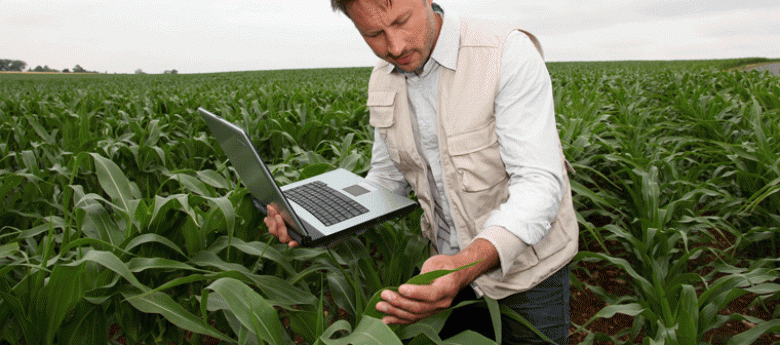GENERAL PRESENTATION
The purpose of ENSAIA’s Agronomy Engineer program is to teach students to become high level specialists in Life Sciences and Technologies. An Agronomy Engineer leaves ENSAIA a scientific and technical expert with managerial skills, whose endeavor is to develop agriculture that will be sustainable, reliable and competitive.
ENSAIA’s Engineering Degree in Agronomy is awarded after 3 years, or 6 semesters, which are organized around 2 programs: an initial program (S5 - S8) and a specialization program (S9 – S10), which is introduced by a semester of pre-specialization (S8). An international program is offered during the specialization year. A gap year is also possible between 2nd and 3rd year.
This engineering curriculum also includes 3 internships, a total of 42 weeks, of which one is a mandatory 3-month work placement abroad after S8 as well as a 6-month end-of-studies placement to finish the program.
Throughout the program, great emphasis is placed on projects, individual initiative and contact with professionals in the field (operations projects, visiting companies and domains, participating in professional trade fairs, etc.)
S5, S6, S7 Programs: General program
-
Life Sciences (animal, plant, fungi)
-
Animal and plant production
-
Environmental Sciences and Engineering, Soil Sciences
-
Biotechnologies
-
Mathematic, statistic, computer tools
-
Economy, Marketing, Management
-
Languages
-
Projects
The first semester (S5) of the program is in common with the Food Industry program. A 6-week work placement on a mixed farming or mixed livestock farm, divided into 2 periods during and after S6, finishes the first year.
S8 Programs: pre-specialization and international experience
During the 2nd semester of the 2nd year (S8), the initial program is completed with specific pre-specialization studies, which are a prelude to the final year of specialization. ENSAIA offers 12 specializations, of which 8 are accessible through the Agronomy program:
-
Agriculture and Regional Development
-
Sustainable Development of Agricultural Sectors
-
Crop Protection
-
Biotechnologies
-
Environmental Sciences and Engineering
-
Environmental Sciences and Technologies
-
Management of the Supply Chain and Logistics
-
Innovation & Entrepreneurship
The semester also includes a 13-week work placement, which must be carried out in a foreign country.
S9-S10 Programs: specialization
The objective of the 3rd year curriculum is to:
- give a complementary education that will ensure the transition from the initial education (acquiring knowledge) to professional life (using this knowledge),
- develop a sense of responsibility, individual abilities in innovation and creativity, communication skills and teamwork,
- participate in creating knowledge through research, and learning to synthesize and use the knowledge acquired through end-of-studies internships and theses.
The academic part of the program is in the pre-specialization studies done during Semester 8.
For students who have been with the engineering program since the 1st year, it is possible to take up another specialization in another engineering school in France, on the condition that the program is not offered at ENSAIA. Inversely, students from other engineering schools can apply to carry out their final year in one of the 12 specializations at ENSAIA.
In parallel with their 3rd year specialization, students, especially those who would like to go into research, can also enroll in a Master’s program.
Other than the specific studies for each specialization, English courses are provided for students who have not yet obtained a B2 level with a recognized external exam (Cambridge First Certificate, TOEIC, IELTS, etc.). The others have material at their disposition for self-study so that they can maintain and improve what they have already learned.
This year is terminated with a 4- to 7-month end-of-studies internship, finishing no later than 30 September (viva voce included).
The end-of-studies internship must:
- concern a study subject that will lead to a written report and a viva voce before a jury selected by the school,
- be approved by the specialization advisor
- not be carried out in one of the school’s laboratories, but be authorized by a signed agreement between the student, the specialization advisor, the internship tutor and the Director of ENSAIA.
Specializations
Agriculture and Regional Development
ADVISORS: guido.rychen@univ-lorraine.fr ; agnes.fournier@univ-lorraine.fr
Sustainable Development of Agricultural Areas
ADVISOR: yves.leroux@univ-lorraine.fr
Crop Protection
The objective of the specialization PROTECH is to prepare future engineers for the new concerns in plant protection with a view toward sustainability in agriculture. In fact, the players in the agricultural sector are more and more committed to agriculture which is more respectful to man and the environment. Developing reasonable and integral protection, which revolves around the three axes “anticipate, observe, intervene”, so that phytosanitary products can be better used, by treating wisely, at the right moment and with the right product, chemical or biological.
ADVISOR: emile.benizri@univ-lorraine.fr
Biotechnologies
The specialization BIOTECH aims at preparing students for different careers related to biotechnologies (R&D, biomolecular production, consulting, intellectual property, etc.) in the sectors of bioprocesses and seed/plant improvement.
RESPONSABLES : Alain.Hehn@univ-lorraine.fr ; Stephane.Delaunay@univ-lorraine.fr
Environmental Sciences and Engineering
Growing demographics and pressure on natural resources, the globalization of environmental problems, regulatory pressure, crises and accidents, all henceforth require the know-how for repairing the damage caused by past actions (diagnose, treat, convert) and protecting resources (utilization, recycling, preserving, etc.). Regional governments and industries need engineers that have the ability to deal with complex issues, from a technical point of view, while also taking into consideration the socio-economic and judicial aspects.
ADVISOR: Christophe.Schwartz@univ-lorraine.fr
Environmental Sciences and Technologies
STE is a specialization that involves the four engineering schools of the University of Lorraine (Ensaia-Ensg-Ensgsi-Ensic) in answering the cross-disciplinary environmental issues that professionals must deal with.
ADVISOR: Guillaume.Echevarria@univ-lorraine.fr
Management of the Supply Chain and Logistics
Logistics is the organization of the flow of material, people and information necessary for factories, warehouses and transport to function well. Supply Chain is for coordinating the relations between the different departments of a company and, beyond that, creates partnerships between suppliers and clients. It allows for managing and optimizing all functions from design to final distribution (purchasing, planning, customer service, etc.).
ADVISOR: Auguste Rakotondranaivo@univ-lorraine.fr

